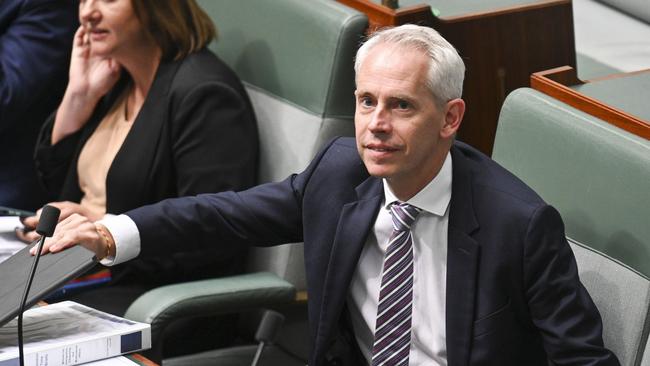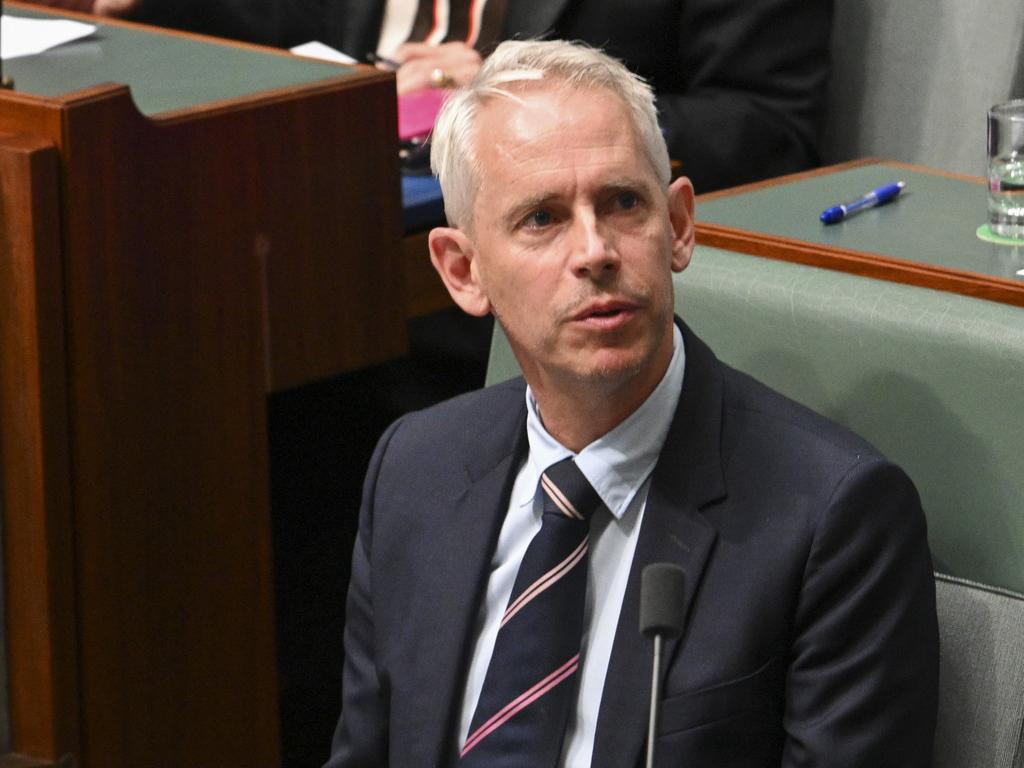Iranian detainee ASF17 ‘inconsistent, has issues of credibility’: Commonwealth High Court case
The Commonwealth will argue a detained Iranian man repeatedly gives inconsistent evidence in a test case that could see over 100 non-citizens refusing deportation released.

The Commonwealth will argue a detained Iranian man has serious issues of credibility and has repeatedly given inconsistent evidence about his fears of deportation, in its latest bid to sway the High Court to reject an appeal brought by the man who is refusing to co-operate with his expulsion.
In written submissions to the High Court on Thursday, Commonwealth solicitor-general Stephen Donaghue KC argued that the man, known as ASF17, is “lawfully detained for the purpose of removal to Iran” and could be released from detention if he simply co-operated with the removal.
The ASF17 matter has become a looming test case that could see more than 100 detainees who are also refusing to co-operate with deportation released if the government loses.
According to documents filed in court, ASF17 has said he is stateless, undocumented, converted to Christianity and Kurdish, a minority persecuted in Iran.
But he had previously told authorities that he was an Iranian citizen and left the country for economic reasons, and government officials found an Iranian driver’s licence among his possessions.
Government officials said in court documents that his family own property in Iran – only citizens can legally do that – and they do not believe his conversion to Christianity is legitimate.
ASF17 claims he is a bisexual, and fears harm in Iran on the basis that he had been found by his wife having sex with another man.
Mr Donaghue, in his submissions released on Thursday, claimed the first time ASF17 gave evidence about being caught being unfaithful by his wife was during the ongoing court proceedings, and said it was not advanced in various other visa application processes.
He said the claim was rejected by the primary judge who first oversaw the proceedings in the federal court, Justice Craig Colvin, and argued that the inconsistent evidence pointed to various issues with ASF17’s credibility.
“While the primary judge accepted that the appellant’s ‘present and recent sexual orientation’ was bisexual, he did not accept that the appellant was discovered by his wife in bed with another man before coming to Australia, nor that he fled Iran because of that event or its consequences,” Mr Donaghue wrote in submissions.

“Nor did the primary judge accept that the appellant had converted to, or was a practicing adherent of, Christianity. The essential reason for these findings was that the primary judge formed a highly adverse view of the appellant’s credibility. His Honour was not satisfied that the appellant’s evidence was reliable, noting many inconsistencies in his accounts.”
Mr Donaghue pointed to a finding made by the judge that “the appellant ‘was saying whatever came into his mind to support his case’ and that his evidence was ‘inconsistent, illogical and lacking in any credibility’.”
“With respect to other evidence, he found that the appellant was evasive in cross-examination had given evidence that ‘d(id) not make sense’; and had adopted inconsistent positions over a period which ‘reflect(ed) very adversely upon his credibility’, demonstrating that he was ‘prepared to concoct and adhere for a considerable period to a false version of events for the purpose of assisting his claim to protection’,” Mr Donaghue submitted.
Mr Donaghue said that ASF17 is “lawfully detained for the purpose of removal to Iran.”
“He has not been removed to Iran because he has refused to meet with Iranian authorities for the purpose of procuring travel documents to facilitate his removal,” he submitted.
“There is no dispute that, if the appellant took the step of procuring such travel documents (which it is and has at all times been within his power to do), he could.”
Mr Donaghue also said the Commonwealth had investigated third country options for ASF17’s removal, but “had concluded that none was viable.”
The Commonwealth will also argue that if a “non-citizen who has been refused permission to enter or remain in Australia could be removed if they cooperated with their removal, the detention that is required and authorised by ... the Migration Act ... is reasonably capable of being seen as necessary for the legitimate and non-punitive purpose of removal from Australia.”
“In constitutional terms, the detention of an alien does not lose the objectively determined purpose of removing the alien from Australia if the alien is choosing not to cooperate in achieving that purpose,” Mr Donaghue submitted.
“Such detention cannot properly be characterised as punitive, because the alien could bring it to an end at any time.”
Anthony Albanese suffered a major political setback on Wednesday after his embattled ministers Clare O’Neil and Andrew Giles failed to rush emergency removal powers for non-citizens through the parliament.
The legislation – which would hand Immigration Minister Mr Giles the power to force unco-operative non-citizens who have exhausted all their legal options to remain in Australia home, or face a mandatory one year in jail – was linked to the ASF17 case.
A day after first being briefed on the deportation powers, which the government had wanted passed on Wednesday, the Coalition announced it would not support the bill and instead referred it to a parliamentary inquiry to be scrutinised and reported on by May 7.
The Greens and majority of the Senate crossbench sided with the Coalition, with just Labor voting against the referral.






